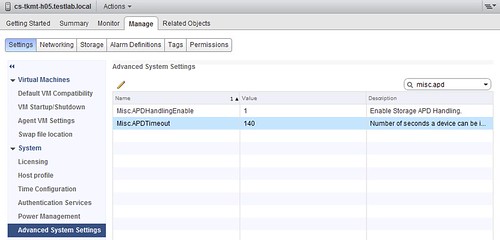I just finished writing the vMSC 6.0 Best Practices paper which is about to be released when a question came in. The question was around the APD scenario and whether the response to an APD should be set to aggressive or conservative. Its a good question and my instinct immediately say: conservative… But should it be configured to that in all cases? If so, why on earth do we even have an aggressive method? That got me thinking. (By the way, make sure to read this article by Matt Meyer on VMCP on the vSphere blog, good post!) But before I spill the beans, what is aggressive/conservative in this case, and what is this feature again?

VM Component Protection (VMCP) is new in 6.0 and it allows vSphere to respond to a scenario where the host has lost access to a storage device. (Both PDL and APD.) In previous releases, vSphere was already capable of responding to PDL scenarios but the settings weren’t really exposed in the UI and that has been done with 6.0 and the APD response has also been added at the same time. Great feature if you ask me, especially in stretched environments as it will help during certain failure scenarios. [Read more…] about Conservative vs Aggressive for VMCP APD response
